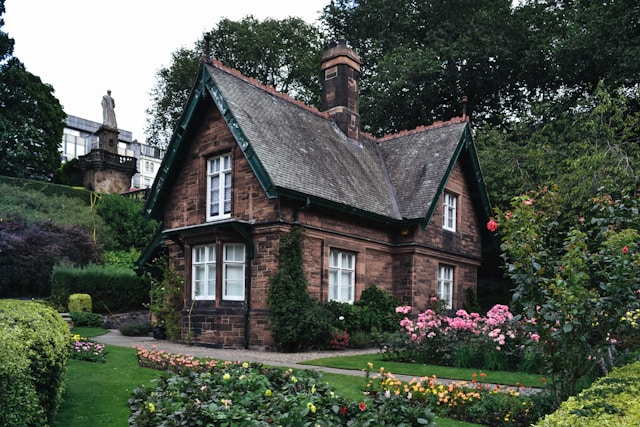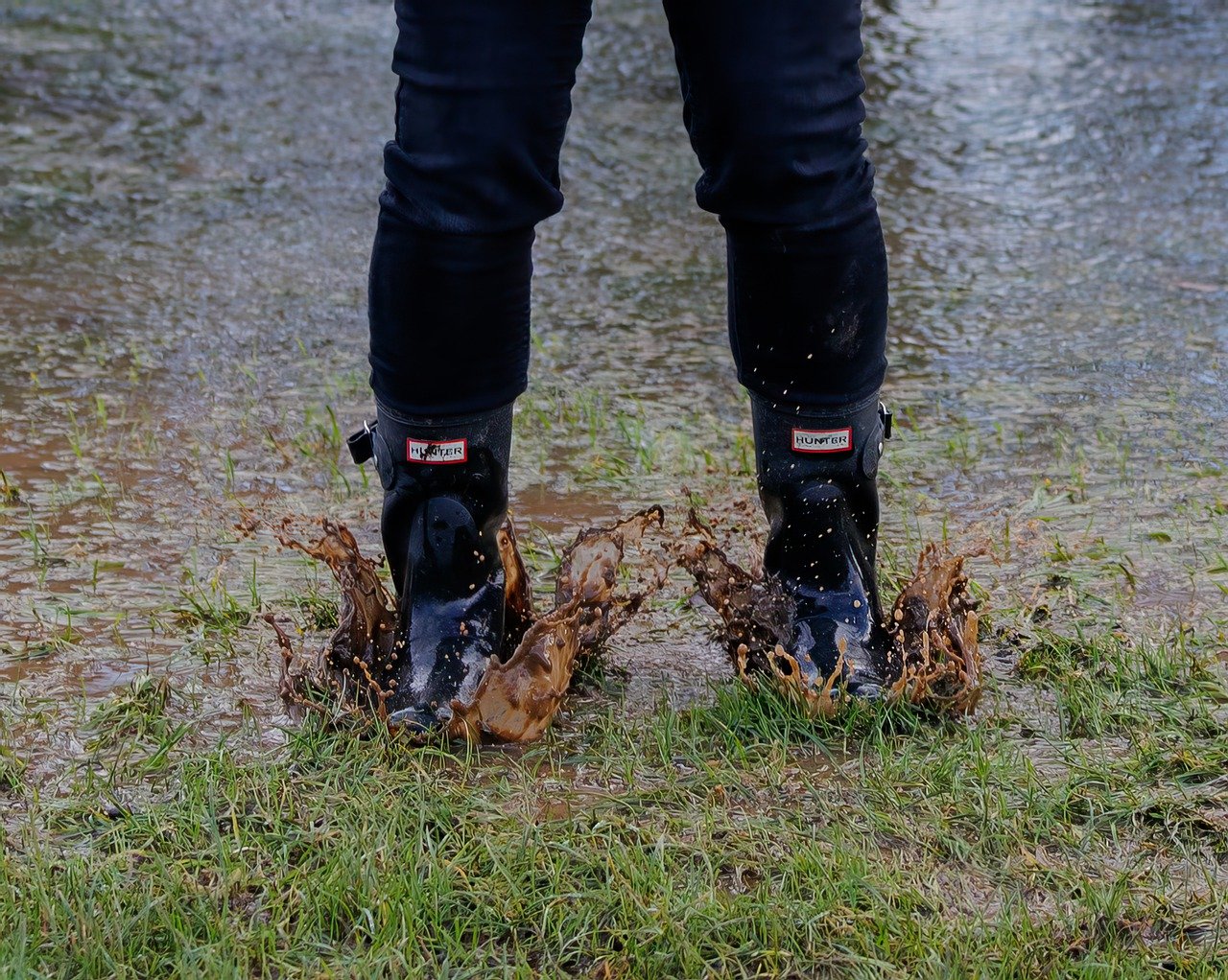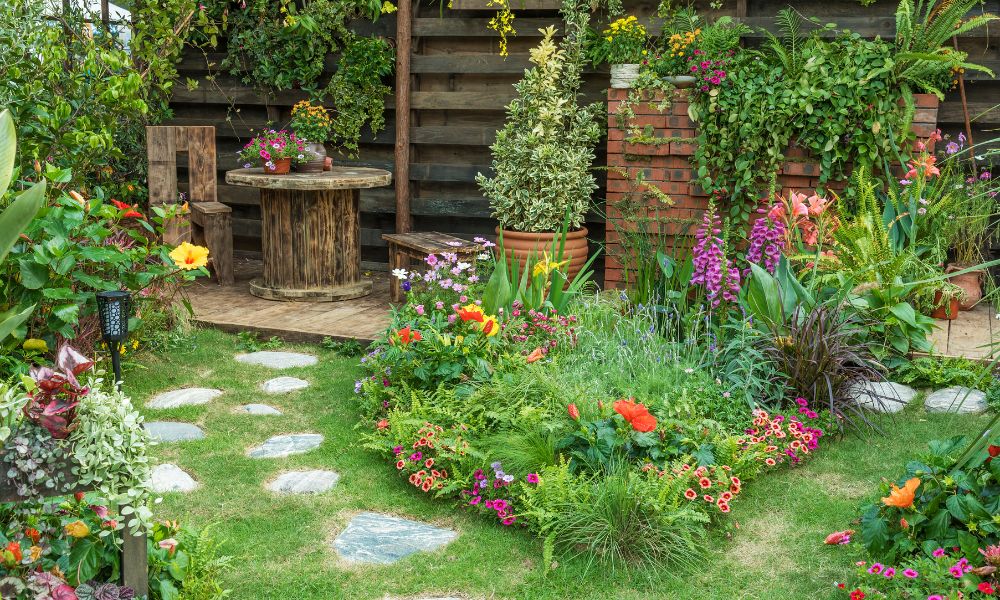Lawn care is not just limited to tree trimming your yard occasionally. It involves a set of deliberate and regular practices that aim to promote healthy grass growth and a vibrant, eye-catching garden. These practices include aeration, proper mowing techniques, watering, fertilization, weed control, and pest management. Each element of lawn care plays a vital role.
Opting for professional lawn service can be a game changer, especially in a city like Indianapolis where seasonal changes significantly affect lawn health. Professionals bring a wealth of knowledge about local conditions, tailored solutions for specific problems, and efficiency in handling extensive lawn care needs.
They can diagnose issues like soil deficiencies or pest infestations early and manage them effectively before they escalate. Professional lawn care services can provide consistency and reliability, ensuring your lawn remains in top condition year-round, and enhancing the beauty and value of your property.
Understanding Indianapolis Climate and Soil
The continental climate of Indianapolis, with cold winters and hot, wet summers, demands adaptive lawn care strategies. Choosing resilient grass types and adjusting care routines seasonally is crucial for landscaping services tailored to the local climate.
Soil types in Indianapolis range from sandy loam to clay loam, affecting water retention and nutrient distribution. Identifying your soil type is important, as it dictates specific care needs such as watering frequency and aeration to optimize lawn health.
Seasonal Lawn Care Practices
Adapting your lawn care strategies to the changing seasons in Indianapolis is for maintaining a healthy and vibrant lawn year-round. Here’s how you can adjust your lawn care routine to the city’s distinct seasonal patterns:
Spring Lawn Preparation
Spring is a critical season for lawn care maintenance services, focusing on rejuvenating your lawn after winter.
Aeration and Dethatching: After the harsh winter, your lawn might be compacted and suffocated by layers of thatch. Aeration involves perforating the soil with small holes to allow air, water, and nutrients to penetrate the grass roots. This helps the roots grow deeply and produce a stronger, more vigorous lawn. Dethatching removes the dense layer of dead plant material that can hinder water and nutrient absorption, facilitating better drainage and increased effectiveness of fertilizers.
Fertilization Techniques: Spring is the ideal time for lawn fertilization to promote lush, green growth. Use a slow-release nitrogen fertilizer that matches your soil’s nutrient needs (as identified in a soil test). Applying it too early in spring can stimulate premature growth susceptible to late frosts, so timing your application is crucial.
Summer Maintenance Tips
Summer lawn maintenance focuses on proper mowing techniques and optimized irrigation strategies to sustain your lawn’s health during the hotter months.
Proper Mowing Techniques: Mowing your lawn at a higher setting during the summer indeed helps protect the roots from excessive heat and aids in retaining soil moisture. Proper lawn mowing practices promote the growth of a thicker, healthier turf that is more resilient to weeds and diseases.
Irrigation and Watering Strategies: Water your lawn deeply but infrequently to encourage deep root growth, which is essential for drought resistance. Early morning is the best time to water, as it reduces evaporation and the likelihood of disease development. Adjust your watering based on rainfall to avoid overwatering, which can lead to fungal growth and other diseases.
Fall Cleanup and Winterization
Fall is about preparing your lawn for the cold months ahead, ensuring it emerges healthy in the spring. Regularly remove fallen leaves to prevent them from matting down and smothering the grass, which can lead to fungal diseases and other health problems for your lawn.
Apply a late-fall fertilizer that is high in potassium to help your lawn resist the cold and diseases during the winter months. Gradually lower the cutting height of your mower at the end of the fall to prevent the grass from matting under snow, which can encourage mold growth.
Weed Control Strategies
Effective weed control is critical for maintaining a healthy, attractive lawn in Indianapolis, where common weeds include dandelions, crabgrass, and broadleaf plantain. These weeds can quickly overrun a lawn, competing for nutrients, light, and space.
Pre-emergent herbicides prevent the germination of annual grassy weeds like crabgrass, while post-emergent herbicides target visible weeds such as dandelions. Timing these applications correctly ensures efficiency and prevents wastage.
Organic weed management solutions offer an eco-friendly alternative. Options like corn gluten meal work as natural pre-emergent herbicides, and vinegar-based solutions can tackle existing weeds. Moreover, through regular mowing, watering, and fertilizing, a well-maintained lawn naturally reduces weed proliferation by promoting stronger grass growth.
Pest Management in Indianapolis Lawns
Managing pests effectively is vital for maintaining the health and beauty of lawns in Indianapolis. Common lawn pests in the area include grubs, chinch bugs, and sod webworms. These pests can damage grass by feeding on roots and blades, leading to brown patches and thinned areas.
Integrated Pest Management (IPM) approaches provide a strategic framework for managing lawn pests. IPM involves monitoring pest populations, identifying pests accurately, and choosing effective control methods that minimize environmental harm. Depending on the severity and type of pest infestation, this may include cultural, mechanical, biological, and chemical control methods.
Some techniques can be used to maintain a healthy lawn and prevent pest problems in an environmentally friendly way. One of these techniques is introducing beneficial nematodes that target and kill grubs. Another effective method is applying neem oil to deter various insect pests. Additionally, maintaining a healthy lawn through proper cultural practices like appropriate mowing and watering can boost the lawn’s natural defenses and reduce pest problems.
Lawn Care Equipment Essentials
Effective lawn maintenance requires the right tools. Mowers and trimmers keep the grass at an ideal height and ensure clean landscaping edges. Irrigation systems help maintain a consistent watering schedule, critical during Indianapolis’s dry spells, providing even hydration while conserving water. Lastly, soil testing kits allow homeowners to analyze soil conditions, enabling precise adjustments to soil nutrients and pH levels to optimize lawn health.
Sustainable Lawn Care Practices
Adopting sustainable lawn care practices benefits both the environment and your garden’s health. These methods reduce chemical use, conserve resources, and promote biodiversity. Incorporating native plants into your lawn design is a strategic move, as these species are adapted to the local climate and soil conditions, requiring less water, fertilizers, and pesticides. This not only saves on maintenance costs but also supports local wildlife.
Water conservation techniques are equally important. Methods like drip irrigation, rainwater harvesting, and choosing the right times to water (early morning or late evening) significantly reduce water usage. These practices ensure that your lawn receives the necessary hydration without wasting this valuable resource.
Hiring the Right Lawn Care Service
Choosing the right lawn care company in Indianapolis is important for maintaining a beautiful, healthy lawn for residential and commercial customers. Consider hiring professional lawn care services in Indianapolis to ensure expert attention and tailored care for your lawn’s specific needs. Here’s how to identify providers that offer comprehensive lawn care solutions:
Researching Local Companies
Begin your search by identifying local lawn care companies that are well-reviewed and established in the community. Companies that provide the best lawn care services usually offer a variety of solutions to cater to all your lawn’s needs. These solutions include seasonal treatments, perimeter pest control, and specialized services such as aeration or fertilization. With a comprehensive portfolio of services, you can be sure that your lawn is taken care of by the best in the industry.
Evaluating Services Offered
Review what each company offers, from basic yard maintenance to full-scale landscape maintenance. Companies that provide lawn care services often include additional options like lawn aeration, fertilization, and pest control, ensuring quality lawn care services.
Understanding Pricing Structures
Finally, consider the pricing. Look for providers that offer clear, upfront pricing structures to ensure you receive affordable lawn care services without hidden fees. Compare quotes from several companies to find the best value for the services you need.
Enhancing Curb Appeal through Landscaping
Your home’s exterior is the first thing visitors notice, making curb appeal crucial for leaving a lasting impression. Landscaping plays a pivotal role in elevating your property’s aesthetic charm. Let’s delve into these elements to transform your outdoor space into a captivating oasis.
Incorporating Hardscape Elements
Hardscaping adds structure and functionality to your outdoor space. Choose materials that complement your home’s style and the surrounding environment, whether it’s rustic stone pathways or sleek patio pavers. These elements create focal points and define the layout, instantly elevating your landscape’s visual appeal.
Choosing Plants for Aesthetic Appeal
Plants are the soul of any landscape, adding color, texture, and vitality. When selecting plants for aesthetic appeal, consider factors like bloom time, foliage variation, and growth habit. Incorporate a mix of evergreen shrubs for year-round interest, flowering perennials for seasonal bursts of color, and ornamental grasses for dynamic movement.
Seasonal Maintenance for Landscaping
Maintaining your landscaping throughout the seasons is important to preserving its beauty and health. Spring heralds a flurry of activity, from pruning dormant plants to refreshing mulch beds and fertilizing soil. Summer calls for regular watering, weeding, and deadheading to keep your garden lush and vibrant.
Summary: Achieving a Lush and Healthy Lawn in Indianapolis
Mastering lawn care in Indianapolis requires a holistic approach that encompasses understanding the local climate and soil, implementing seasonal maintenance practices, controlling weeds and pests effectively, and adopting sustainable lawn care techniques. By incorporating these strategies into your lawn care routine, you can ensure that your lawn remains healthy, vibrant, and eye-catching throughout the year.
Whether you choose to tackle lawn care tasks yourself or enlist the help of lawn care professionals, the key is consistency and attention to detail. By investing time and effort into proper lawn care, you not only enhance the beauty and value of your property but also create a welcoming outdoor space that you can enjoy year-round.
So, roll up your sleeves, equip yourself with the knowledge and tools needed to master lawn care in Indianapolis, and embark on a journey to transform your lawn into a lush, green oasis that you can be proud of. With dedication and the right approach, you’ll soon be the envy of your neighborhood with a lawn that stands out for all the right reasons.






